A guest writer shares his experience with failing the oral boards during his first go-around and how he passed it.
The Experience
I have to admit -- I was one cocky S.O.B. I passed the Written Qualifying Exam (WQE) and scored a respectable 90th percentile. There was only one hurdle left before the holy grail of board certification, and that was the Oral Boards. Reflecting back on those days, I really had no idea how to prepare for the orals. For whatever reason, there was this shroud of mystery surrounding the format of this exam. No one could give me or my friends a straight answer on how one was judged to pass the exam or the approach to prepare for it. I distinctly remember an attending flippantly say, "Just read the Wills Manual and you will be fine." So I did that. I just memorized the clinical management of cases in the Wills (supplementing with Friedman) and thought that was enough to pass.
As you probably know, the ABO's oral exam is held at a hotel. In my case, it was The Palace Hotel in San Francisco. It is a 3-hour exam broken up into 6 sessions (i.e. 25 minutes per session with a 5 minute break). You sit in a hall with other nervous candidates, outside hotel rooms where the actual sessions take place. Then the candidates rotate through the different rooms in that hallway. In each of the rooms, there is the main examiner and sometimes another examiner-in-training. You're not supposed to know these examiners personally since they are supposed to excuse themselves from any candidate names that they recognize on the list. The first thing that I noticed is that these examiners have the biggest poker faces on. I mean, it is like someone injected their facial muscles with 200 units of BoTox. Since I was unaccustomed to these emotionless countenances, this made me very nervous. The examiner started the session by showing me a clinical photo of something super-obvious. Instead of going through some type of systemic speech, I just blurted out what the condition was and what I would treat it with. When they asked questions like "Could this be any other condition?" I replied haughtily, "No, this is definitely so-and-so." I felt great during the entire exam morning, since I knew every photo that was presented to me. I ignored the blank faces of my examiners thinking to myself, "I know everything!". After the exam was over, I called home and told my partner, "I just dominated the orals!". I went partying that night with some of my S.F. friends, believing that my path to board certification was finally over.
You've Been Served
About a month later, I received that fateful letter telling me that I had failed. I was shell-shocked. How was it possible that I failed when I knew all of the conditions tested? The frustrating part of the oral boards, is that they give you zero feedback on what sections you did well or poorly. Unlike the WQE where they give you percentile scores for each section, the notification letter for the orals is binary: pass or fail. After feeling depressed for at least a month, my doldrums morphed into self-reflection. I realized some hard truths: (1) Knowledge is not enough to pass this exam; and (2) Overconfidence doomed me.
I started conducting more due diligence on how to pass the oral exam. The most significant thing that I failed to do in my initial preparation was actually practice my "speeches". I'm not a gifted public speaker by any stretch of the imagination. Thus, I'm sure that my lack of practicing aloud translated into a fumbling dialogue with the examiners. The most important change that I made was to write down and memorize standardized scripts for every "high-yield" ophthalmic condition. And then I would practice reciting these scripts in front of a mirror or with a trusted colleague. My rationale was that I wanted everything to be completely reflexive which would be interpreted by the examiner as being fluent and thus knowledgeable. There is a famous book, "The Power of Habit," that relays the story of how Tony Dungy, the NFL Football coach, achieved success with his players. Dungy basically conditioned his players so that everything would be reflexive and part of their innate habits. He explained, "Champions don't do extraordinary things. They do ordinary things, but they do them without thinking, too fast for the other team to react." The same rationale can be applied to the oral boards. Anyone who passes the WQE has the requisite knowledge base to pass it. But what distinguishes someone who aces the orals is that (s)he will have a fluid speech ready for any condition thrown at them. This fluidity can only be achieved by practicing these speeches repeatedly till it requires no conscious mental effort. Thus, I made sure that my scripts were very organized and would progress in the same standard way every time:
I started conducting more due diligence on how to pass the oral exam. The most significant thing that I failed to do in my initial preparation was actually practice my "speeches". I'm not a gifted public speaker by any stretch of the imagination. Thus, I'm sure that my lack of practicing aloud translated into a fumbling dialogue with the examiners. The most important change that I made was to write down and memorize standardized scripts for every "high-yield" ophthalmic condition. And then I would practice reciting these scripts in front of a mirror or with a trusted colleague. My rationale was that I wanted everything to be completely reflexive which would be interpreted by the examiner as being fluent and thus knowledgeable. There is a famous book, "The Power of Habit," that relays the story of how Tony Dungy, the NFL Football coach, achieved success with his players. Dungy basically conditioned his players so that everything would be reflexive and part of their innate habits. He explained, "Champions don't do extraordinary things. They do ordinary things, but they do them without thinking, too fast for the other team to react." The same rationale can be applied to the oral boards. Anyone who passes the WQE has the requisite knowledge base to pass it. But what distinguishes someone who aces the orals is that (s)he will have a fluid speech ready for any condition thrown at them. This fluidity can only be achieved by practicing these speeches repeatedly till it requires no conscious mental effort. Thus, I made sure that my scripts were very organized and would progress in the same standard way every time:
- Describe the photo.
- History I would obtain.
- Exam findings I would seek out.
- State focused differential diagnosis.
- State most likely diagnosis.
- State what other tests you would want to get to rule-in the diagnosis.
- Give your management for the most likely diagnosis.
- State the prognosis and possible complications associated with the condition and its treatment.
Also instead of looking at my examiner for potential non-verbal feedback, I took the approach of just powering through my soliloquy unless the examiner stopped me to ask any questions. Though this way of speaking does not mirror real-life human interaction, I believe it is the correct technique. That way, I wouldn't miss any important points about the vignette or get side-tracked by my perception of "how I am doing on the exam."
Veni Vidi Vici
As you can guess, I managed to pass the orals the second time around using the above approach. Of course, I'll never know if I "dominated" the exam using my revised approach -- again, I just got a simple "you passed" notification. But I did lend my time practicing with first-time examinees, and emphasized to them the "soliloquy approach". And yes, they all passed using this technique. I learned a lot about myself after failing (and then passing) the oral boards. I learned about the dangers of overconfidence, but also realized how important resiliency is to achieve one's goals in Life. From this article, I only hope you learn these lessons without having to pony up another $1,950 to take the oral boards over again!
Want to get more from OphthoQuestions?

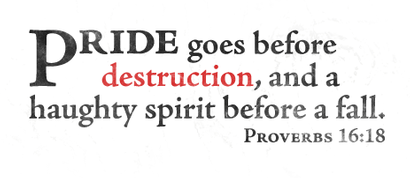

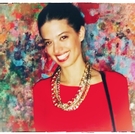
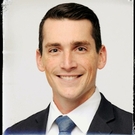

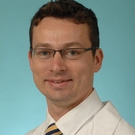

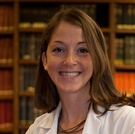
Please login to comment.